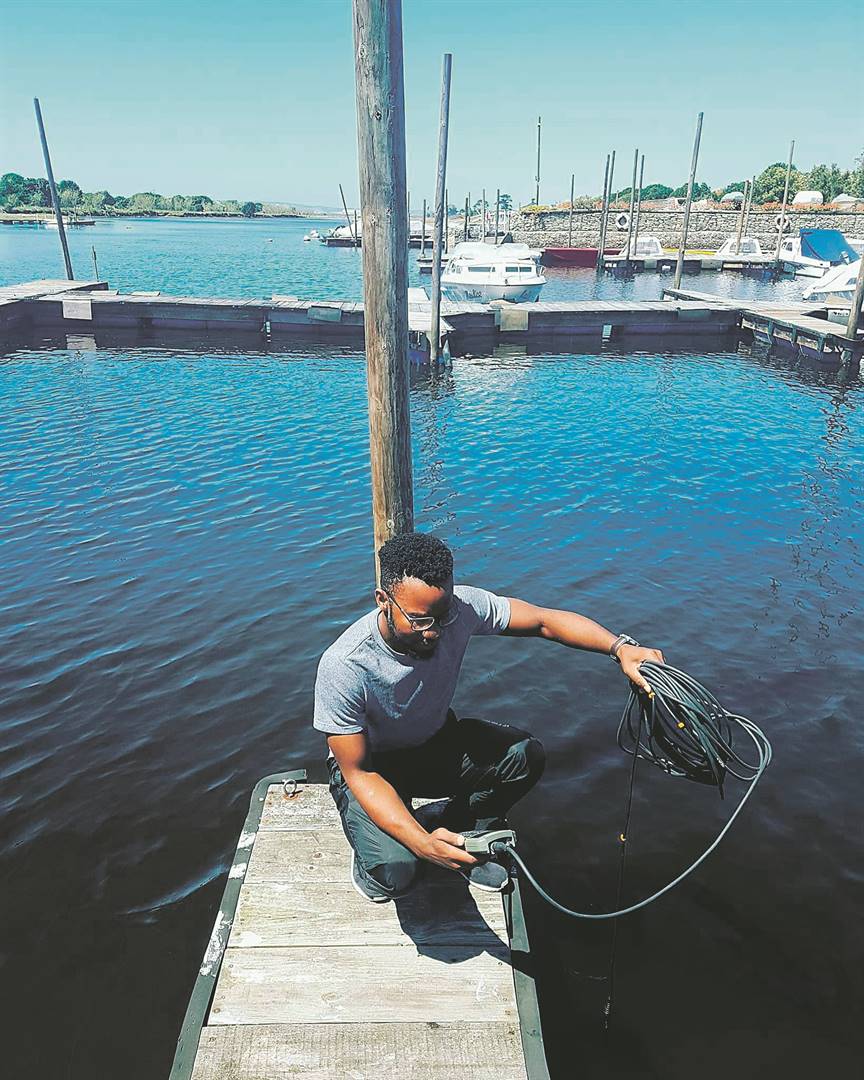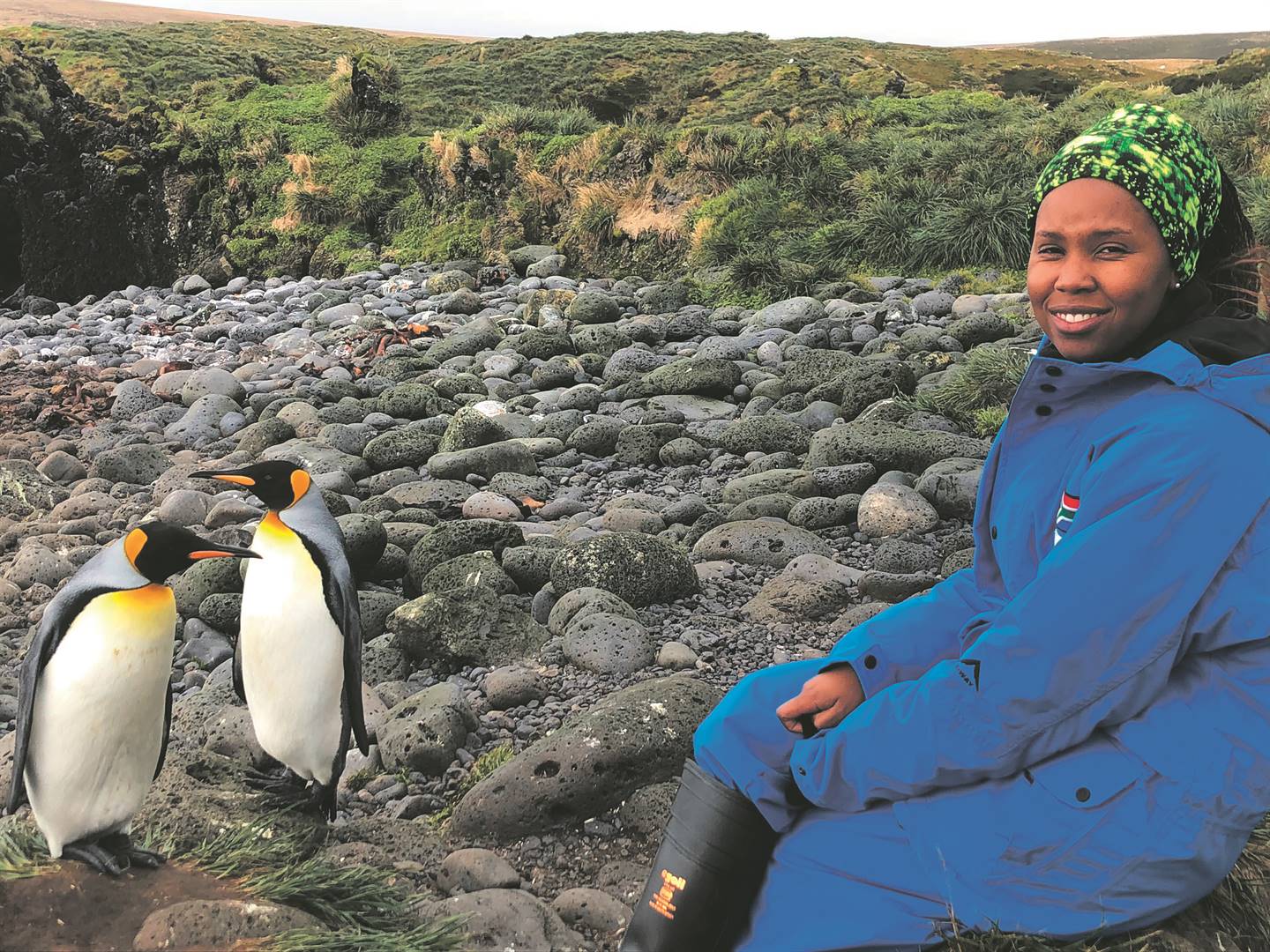
As South Africa celebrates a generation of freedom, Anglo American acknowledges its deep roots in the country and looks ahead to its contribution in the next 25 years and beyond. Over the next five weeks experience 25 Reasons to Believe with City Press as we explore the economy, job creation, enterprise development, health, land reform, sustainability, education, technology and – most important of all – the communities
JEREMIAH HLAHLA:
WATER SCIENTIST
If it wasn’t for an Anglo American scholarship, Jeremiah Hlahla has no idea what he would be doing now. Hlahla was orphaned at a young age, and grew up in a children’s home on the outskirts of Emalahleni in Mpumalanga. He attended Phillip Ndimande Secondary School in Hlalanikahle, which is where he heard about the Anglo American scholarship.
“From Grade 9, I wanted to be a scientist. I loved science. I grew up in Witbank [Emalahleni], so the environment wasn’t great. There are lots of mining companies in the area. They are doing well, but aren’t managing the environment. There is lots of air pollution and the water quality isn’t good. At the end of the day, these environmental impacts affect humans, and I wanted to help the environment and the people.”
But Hlahla had no idea how he could make his dream a reality. And then he went to a career exhibition and heard about Anglo American’s Coal South Africa business’ scholarship.
“We had to present our Grade 11 results to apply, but I didn’t qualify for an Anglo American bursary because my physical science marks weren’t up to standard. So I worked hard in Grade 12. The opportunity came around again – someone from Anglo American came to the school with application forms. She only had about five and had come for the better-performing students. I applied and, after two weeks, I was invited to an interview. Eventually, they offered me the scholarship. I was so excited,” Hlahla says.
He went on to study life and environmental science at the University of Johannesburg, and the scholarship covered everything.
“I was really excited – the scholarship opened doors of opportunity for me. It was my only hope of going to university because I had nothing ... I had lived in a children’s home since 2008 with my younger sister. So if it wasn’t for the scholarship, I have no idea what I would have done after matric.”
Hlahla is now completing an internship as a water specialist at a company in Lynnwood, Pretoria. One of the company’s areas of expertise is managing water treatment for the mining environment – an area close to his heart.
He would like to continue his studies and complete a master’s degree one day.
“My aim is to be involved in South Africa in terms of solving issues in the field of water.”
But his sister, now 17, is still in school.
“Right now, I’m pushing to find a permanent job. I want to help her. I feel like it’s my duty to help her.”
DINEO MOGASHOA:
ECOLOGICAL WARRIOR
Dineo Mogashoa recently returned from Marion Island, where she worked as an assistant researcher. It was freezing and wet – literally miles apart from the streets of Mhluzi in Middelburg, Mpumalanga, where she grew up.
If Mogashoa had not been awarded a bursary, she would, like so many other South Africans, have had to rely on the National Student Financial Aid Scheme – which might have given her a foot in the door, but she’d eventually have had to pay back the money. Getting the bursary was “really massive”, she says.
After earning a BSc in environmental sciences and an honours degree in ecology at the University of Pretoria, Mogashoa was selected as a member of a team of scientists who spend 13 months at a time working on the remote volcanic island as part of the SA National Antarctic Programme.
“I always wanted to go to Marion Island, but I actually did it then because I was still conflicted about whether I should continue with my studies and do a master’s degree or start to work. I used it as a gap year to think about my direction.”
So, where to now?
“I’d love to work for a mining company and actually do something in the field of environmental science for mining companies. It’s something I’ve always dreamt of doing.”
Mogashoa grew up in Middelburg, a mining town. A recent study released by Greenpeace Africa shows that the area is the fourth worst nitrogen dioxide air pollution hot spot across six continents. We joke about how the coal dust settles on everything – you have to rub your fruit vigorously to remove a layer of black dust after you’ve picked it.
“I wanted to make a difference in the environment and eliminate degradation caused by mining activity. I’ve experienced the pollution first-hand. That’s why I went into environmental science – I wanted to make a change in that sphere,” says Mogashoa.
She’s passionate about the environment and about encouraging others to get involved.
“I would definitely encourage other young people to take up this area of study – it’s a very important field and is crucial for the times that we live in. There is so much industrial activity and we need people to look out for the planet.”
This is how they made it happen
Dineo Mogashoa and Jeremiah Hlahla are living proof that hard work pays off – but you have to pull your weight to succeed.
Mogashoa and Hlahla are recipients of an Anglo American scholarship, and both of them heard about the scholarships while at school.
Mogashoa – one of the first wave of graduates from Anglo American’s Coal South Africa business community scholarship scheme – heard about the bursary applications while in Grade 12 at Sofunda Secondary School.
“I got the application forms from the principal. I filled them out in September, found out I’d got it in December and started studying in January,” Mogashoa says.
“The scholarship paid for my studies, from undergrad until honours. It included tuition, accommodation and other expenses.”
Unlike Anglo American’s traditional bursary scheme, community scholarship beneficiaries are not required to study in fields related to mining, nor do they have an employment obligation to the company on completion of their studies. Scholarships are awarded exclusively to pupils living in host communities and who come from financially constrained backgrounds.
Hlahla, who is doing an internship as a water specialist at a company in Pretoria, encourages hardworking youngsters to “just apply”.
“Science is interesting. Study it, enjoy it, work hard and there are opportunities. Also look at the other opportunities that Anglo American is offering – bursaries and learnerships. They just require you to work hard,” he says.
“Follow from my example. Anything is possible. All it requires is passion for what you are doing and hard work; taking responsibility. People look at obstacles in South Africa and complain about what is happening around them. I realised complaining won’t help us, so I decided to stop looking at what went wrong and rather focus on moving forward.”




 Publications
Publications
 Partners
Partners










